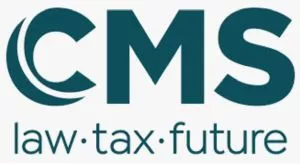Background
In recent years, the crypto-asset landscape has steadily grown and has reshaped the world of payments and investments. Today such assets have an estimated market capitalization of USD 1.09 trillion (Forbes, 2023). This highlights the relevance of these types of assets and the tax authorities' interest in obtaining more information to carry out appropriate controls. It also makes it possible to propose tax rules adapted to this new paradigm and technology which allows the transfer of important amounts of money, in certain cases with opacity.
Recently, on 13 September 2023 the European Parliament (EP) approved the proposal for a Council Directive amending Directive 2011/16/EU on administrative cooperation in the field of taxation (DAC 8), which would require among others, crypto-asset service providers to report transactions made by EU clients.
The above follows and complements the recent adoption in June 2023 of the Regulation (EU) 2023/1114 of the European Parliament and of the Council (MICA), that introduced a harmonized regulatory framework for the crypto-asset market covering the issuance, offer to the public and admission to trading of crypto-assets or that provide services related to crypto-assets in the EU. Indeed, the text of DAC 8 follows certain definitions included in MICA and hence proper reference and attention to such regulation is required.
The Directive 2011/16/EU on administrative cooperation in the field of taxation (DAC) was adopted in 2011 as part of the European union (EU)'s efforts to develop the exchange of information between tax authorities, improve tax compliance and consequently combat tax evasion and fraud. DAC has been amended regularly since 2011 with this proposal being potentially the 8th directive to amend and enlarge its scope of application.
Objective of DAC 8 –
Arguably certain transactions in crypto assets were already reportable, for instance based on the application of DAC 6. However, there were important gaps for such transactions to remain out of the radar of the tax authorities and the EU Commission. This aims to be remedied with DAC 8.
Indeed, DAC 8 is a response to cover the emergence of new methods of payment and investment such as crypto-assets and e-money, which in most cases escape from the scope of DAC.
Scope and obligations
- DAC 8 requires reporting crypto-asset service providers (RCASPs) to carry out due diligence procedures and reporting:
- Due diligence procedures: RCASPs are required to collect and verify information according to the procedures outlined in DAC 8, which include the obligation to obtain a self-certification from each crypto-asset user to determine their tax residence as well as monitoring any change in their tax status. This applies both to individual and entities' users, with particularities for each type of user.
- Reporting obligations: RCASPs must report to the relevant competent tax authority certain information obtained about crypto-asset users further to the due diligence procedures. Some of the information to be reported includes (i) identification details of the reportable user (e.g., name, tax residence and tax identification number), and (ii) details on the crypto-assets on which the users have effectuated reportable transactions (e.g., name of the crypto-assets and amounts).
Reportable transactions cover both acquisitions/disposals of crypto-assets against FIAT currency, exchanges between crypto-assets and retail payment transactions. The transactions should be converted into FIAT currency at the time the transaction happened.
- Registration obligations: crypto-asset operators may be required to register within the European Union.
The competent tax authorities that obtain information further to DAC 8 will automatically exchange such information using the standard computerized formats established under DAC to the tax authorities of the member state where user/entity is resident.
Sanctions
An infringement of the obligations imposed under DAC 8 could entail sanctions. Minimum pecuniary penalties ranging between EUR 20,000 and EUR 150,000, which will depend on the turnover of the reporting institution as well as its nature, would apply when (i) there is a failure to report after two reminders or (ii) at least 25% of the information that should have been reported is incomplete or incorrect. EU member states can additionally include penalties for false self-certifications, impose compliance measures and opt to impose stricter penalties.
Timeline
Although the original proposal was intended to take effect on 1 January 2026, the approved directive will enter into force on 1 January 2027. Member States must adopt and publish the necessary laws, regulations, and administrative provisions by 31 December 2026, at the latest.
What's next?
As part of the recent EU's initiatives to regulate the digital economy and the crypto-asset framework (i.e., MICA), DAC 8 introduces an additional layer of due diligence and reporting obligations for taxpayers acting in the crypto-asset market.
The final implementation in Luxembourg and other EU member should be monitored as it will be crucial to assess whether transactions carried out by taxpayers in crypto assets would fall into the scope of these obligations, to anticipate to the potential impact and costs these compliance obligations would have on them.
The content of this article is intended to provide a general guide to the subject matter. Specialist advice should be sought about your specific circumstances.





